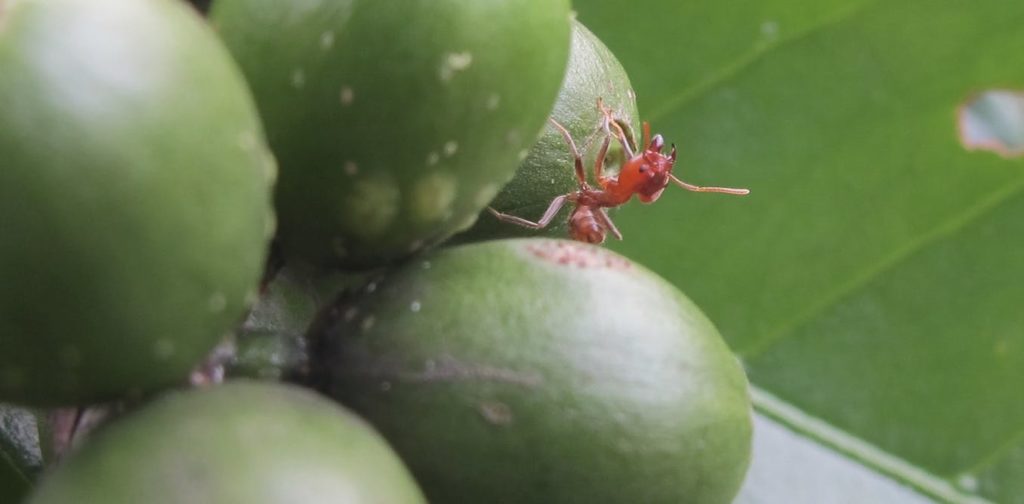Clark students get their hands dirty with ant research

They are small individually, but powerful collectively.
They don’t “speak,” yet possess a complex system of communication.
And they can wreak havoc at a picnic.
Ants. Much of the world regards them as nuisances, but Kaitlyn Mathis, assistant professor of biology, views them as critical protectors of the ecosystem and endlessly fascinating research subjects. Ants, she notes in her biographical profile, “dominate most terrestrial habitats in terms of abundance, biomass, and energy turnover,” and “provide important ecosystem services.” Among their roles is acting as “biological controls in agroecosystems by defending plants against herbivores.”
In short: Ants are the good guys.
Last fall, a group of students approached Mathis about doing ant research, and spent the spring semester helping her process samples. They enjoyed the experience so much that this summer Mathis took them into some of Worcester’s forested areas to study the diversity of ant life, which meant getting down into the soil to uncover the critters. (Below, check out a video of the researchers at work.)
“I really enjoy how hands-on it is,” said Katerina Pela ’20, who noted that ants collected in the city will be compared to ants gathered in agricultural areas.
“We collected colonies and have them set up in the lab,” said Brooke Harris ’21. “After identifying them, we’re doing temperature studies to see if there’s any change in the diversity of ant species.”
Mathis said the student researchers are investigating the ways ants interact with plants and “what those dynamics are — to see whether or not they’re different in these different habitat types.”


